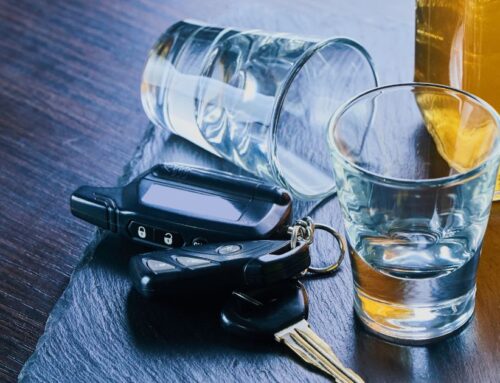If you’ve been charged with impaired driving in Indiana, you may see acronyms like DUI, DWI, or OWI used interchangeably. While these terms all relate to operating a vehicle under the influence of alcohol or drugs, Indiana law specifically uses the term OWI—Operating While Intoxicated. Understanding the distinctions and how they apply in Indiana can help you better navigate your legal options.
How Does Indiana Define DUI, DWI, and OWI?
Driving under the influence of alcohol or drugs is illegal in all 50 states. However, different states use different terminology:
- DUI (Driving Under the Influence):Commonly used in many states to describe operating a vehicle with a blood alcohol concentration (BAC) of 0.08% or higher, or driving while impaired by alcohol or drugs.
- DWI (Driving While Intoxicated or Impaired):In some jurisdictions, DWI refers to impairment by alcohol, drugs, or a combination of both.
- OWI (Operating While Intoxicated):Indiana uses OWI as its official legal term. This charge applies whether the impairment is due to alcohol, illegal drugs, prescription medications, or even over-the-counter substances.
Under Indiana Code § 9-30-5, OWI includes operating a vehicle:
- With a BAC of 0.08% or higher, or
- While intoxicated by alcohol, drugs, or a combination, regardless of BAC.
Can Prescription Drugs Lead to an OWI?
Yes. Even if you are taking a legally prescribed medication, you can be charged with OWI if that substance impairs your ability to safely operate a vehicle. Courts do not differentiate between legal and illegal substances when impairment is proven.
Are OWI Charges Always Misdemeanors?
Not always. Many first-time OWI charges in Indiana are classified as Class C or Class A misdemeanors, but several factors can elevate the charge to a felony, including:
- Prior OWI convictions (especially within the past five years).
- Causing serious bodily injury or death.
- Driving with a minor passenger in the vehicle.
- Driving with a suspended license.
- Refusing a chemical test after a prior OWI.
A felony OWI conviction carries steeper penalties, such as longer jail time, higher fines, longer license suspensions, and potential loss of employment opportunities.
What Happens if I Refuse a Breath or Chemical Test in Indiana?
Indiana’s implied consent law (Indiana Code § 9-30-6-1) states that by operating a vehicle, you automatically agree to submit to chemical testing if requested by law enforcement. Refusing to take a breath, blood, or urine test can result in:
- Automatic license suspension for one year, or
- Two-year suspension for a second refusal.
Refusing a chemical test does not prevent prosecutors from charging you with OWI. Officers may still arrest you based on other evidence of impairment, such as field sobriety test results or observed behavior.
Can an OWI Charge Be Dismissed or Reduced?
Yes. With the help of an experienced defense attorney, it may be possible to have an OWI charge reduced or even dismissed. Common legal strategies include:
- Challenging the legality of the traffic stop. If the officer lacked reasonable suspicion, the stop may be deemed unconstitutional.
- Questioning the accuracy of chemical testing. Mishandling, faulty equipment, or improper procedures can undermine test results.
- Asserting constitutional violations. Such as improper Miranda warnings or unlawful searches.
- Negotiating plea deals or diversion programs. Some first-time offenders may qualify for pre-trial diversion, which can lead to reduced penalties or case dismissal upon successful completion.
Outcomes depend heavily on the facts of the case, the quality of the evidence, and the legal approach used by your defense team.
Talk to a South Bend OWI Defense Lawyer at Wilson & Kinsman, LLC
If you’ve been charged with OWI in South Bend or anywhere in northern Indiana, the South Bend OWI defense lawyers at Wilson & Kinsman, LLC are here to protect your rights. Call 574-522-1900, book online now, or submit a form for your free consultation. Located in Elkhart and South Bend, Indiana, we serve clients in Marshall, LaGrange, Kosciusko, LaPorte, Porter, Lake, Noble, Whitley, Elkhart, and St. Joseph.
Share This Story, Choose Your Platform!
Give us a call!
Testimonials
Read what our former clients have to say:







